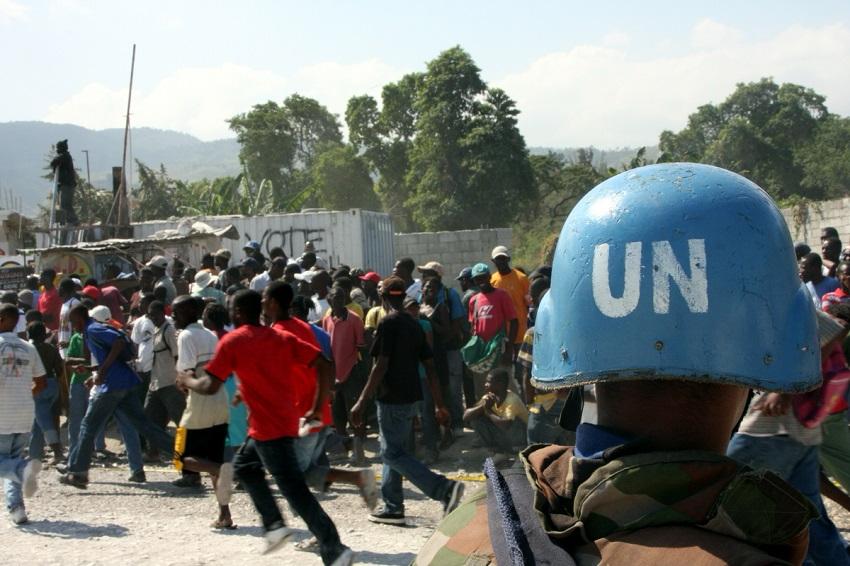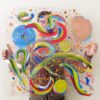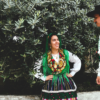Haiti, today, third largest country in the Caribbean is crumbling under a bad reputation mixed with gang violence and political corruption. For the past two years, according to RSF, Haitian journalists have been targeted by gang violence flooding in the country. Laura Louis, former journalist in Haiti, explains her work conditions in Haiti and shares advice for any young Caribbean journalists in the making.
Social worker from 2014 to 2018 in Haiti, Laura Louis discovered her people, her culture, her island as well as her passion for writing. Journalism was a vocation as she started writing to create memories and to analyse conditions of her country. Starting as an intern in AyiboPost, independent media in Haiti, in 2018, Louis then decided to educate herself in France. In 2021, she won the Philippe Chaffanjon Price for a story about generational sexual trauma.
“I was the only female journalist that won two prices in a row for stories about Haiti,” she says adding that this recognition for her feature and her work for Haiti made her an intern at Médiapart and Libération, two important French media.
Alarming stories
I mainly worked on social stories, the one with the biggest impact was on the civil registry.”
Among the biggest challenges she uncovered in her work: an estimated three million Haitians are not even included on the civil registry. Marking the tenth-year anniversary of the 2010 earthquake in Haiti, Louis accompanied with a photojournalist wanted to see how the population was rebuilding the country. She then realised that three millions of Haitian are not on the civil registry, and were never reported as born in Haiti. This feature article is still one of the most read paper on AyiboPost. One third of the Haitian population are thought to be unregistered as citizens of the country. To this day, she adds, those lost documents have not been found.
“It is a very serious and severe affair,” Louis says. Many of those affected by this lack and loss of documents have no idea how to retrieve those documents. Louis has crossed her country trying to hear their voices.
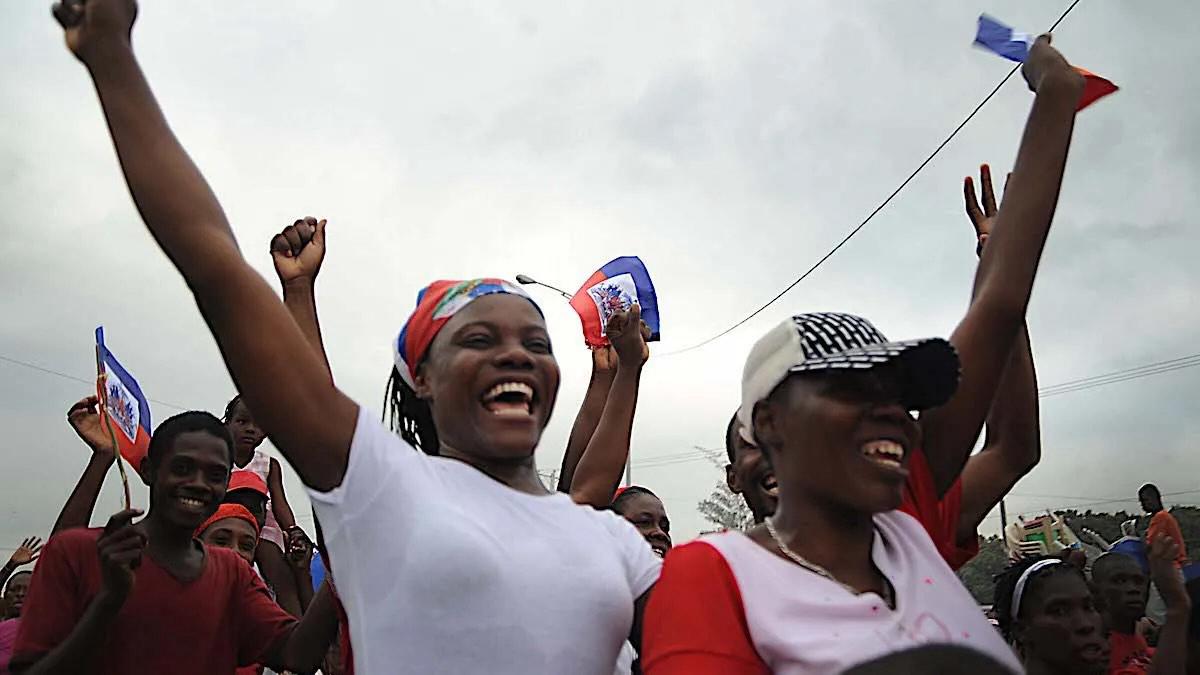
The history of Haiti is linked with generational trauma. Louis won the Philippe Chaffanjon Price with her paper on the virginity test traumatising women in Haiti. The test, commonly known as « tate tifi,” consists of “inserting one person’s finger or the tip of an egg into the girl’s intimate area. If the finger or egg tip passes easily, it means that the girl has already had sexual intercourse. If it doesn’t, the girl is a virgin.”
This long feature parallels the African denounced custom of incision. More women are talking, around diverse territories, about the virginity myth and breaking their silence. Louis won this price because the rareness and the sincerity of her article.
Working during a crisis
Haiti is facing a migration crisis. More and more people are leaving the country because of gang violence, especially from August 2023. According to the United Nations, around 4,700 people were killed in Haiti in 2023, with 2,500 people kidnapped. At least, 30,000 people are victims of gang violence and displaced people inside the country with little or no humanitarian aid. In 2023, three local journalists of Haiti were killed, kidnapped and assaulted. Murders of journalists go unpunished.
Laura Louis still believes in her country, Haiti. But after years of crisis, the former journalist admits she is sometimes afraid. “When I started, I was never afraid going out and talking to people here. But now, in this situation, I would sometimes be afraid,” she explains, adding that “especially as a woman, being a journalist in the streets of Haiti can be scary nowadays. I felt more safe in Europe, more protected.” Since the death of Jovenel Moïse, former president of Haiti, gangs have taken control of most of the suburbs of the capital, which results in self-censored journalists trying to cover the news.
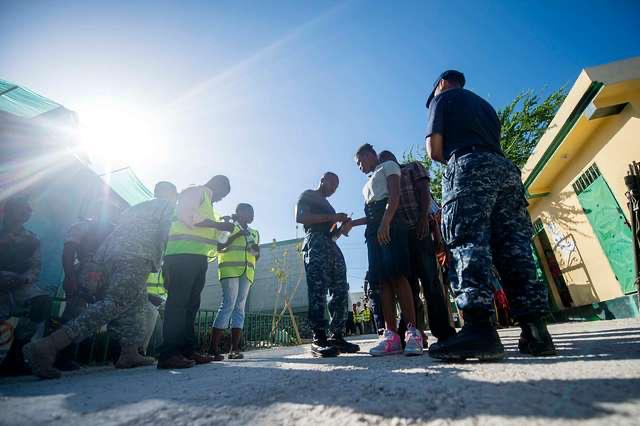
The economic situation of the country is precarious. The history of its debt is linked with neocolonialism from the 1800s, as well American’s interventionism and Haitian politicians’s corruption, according to a New York Times investigation back in 2022. People are still trying to recover from the 2010 earthquake. And the last presidential election was in 2016. Jovenel Moïse’s murder, president of Haiti from 2017 to 2021, is also one of the current reasons why Laura Louis explains the hard living conditions in Haiti. In awaiting of an agreement with Kenya, the country is still crumbling under violence.
“Be proud of where you come from.”
Laura Louis wants to emphasise the human dimension and social work in her journalism. According to her, journalism is crucial, especially in the Caribbean region.
“Be proud of where you come from,” she says adding that young people from the Greater and Lesser Antilles « grow up with the idea that life is better somewhere else than the islands.” Aware of the cultural richness of Haiti, she reminds those young people of their luck to be born where the culture is diverse and where systematic racism is not the “norm.” Before regretting “a constant brain drain [which] is recognised and felt here.”
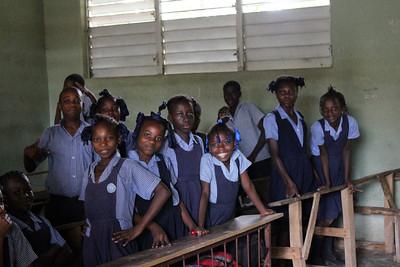
“Haiti is the only place I feel at home,” she adds. Louis also points out that being in Haiti is a opportunity for her. She adds that she started from scratch, without the expectations to be educated in journalism.
Ideally, I’d like to develop personally and professionally in my own country. That’s what I want with all my heart. But I don’t rule out any possibility of working elsewhere. Every opportunity counts, »she says.
Louis is no longer a current foreign correspondant or journalist for any medium in Haiti or in France. She works in communication for several NGOs to present and work on Haiti’s life conditions, especially for young people and their education.


